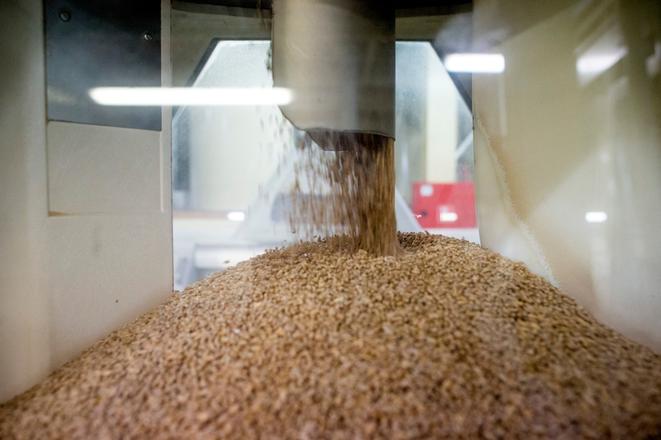Slovakia will ban the imports of selected Ukrainian crops as of Wednesday, a step that has disrupted the country’s iron-clad pro-Ukrainian politics.
As many as 30 cereals and food products, including corn, vegetables, fruit, wine, honey and various seeds appear on Slovakia’s banned list.
The government announced its decision on Monday, April 17. Similar measures have been taken by Poland and Hungary, and Bulgaria is considering the same action. Slovakia decided to ban these crops for fear of becoming the sole EU country through which Ukrainian agricultural products would reach the Union. The government argues that it needs to protect the Slovak agricultural sector and consumers.
The ban comes a few weeks after a letter from the five EU countries bordering Ukraine, including Slovakia, was sent to the European Commission. In the letter, they are asking the Commission for more funds for farmers affected by the Ukrainian exports of crops. The first EU package of €56 million was allocated to the affected countries last month and the Commission has confirmed that it is working on a second package as well. However, the five countries are also proposing reintroducing tariffs and quotas on imports from Ukraine, which would require an intervention in the EU-Ukraine free trade agreement in place.
On Monday, the European Commission admitted that it is not yet fully aware of the legal basis on which some member states have introduced these bans. “Trade policy is an exclusive competence of the EU,” said spokesperson Miriam Garcia Ferrer, adding that unilateral action is not possible. She refused to speculate on what measures the Commission might take against, say, Slovakia.


 Slovakia has banned the imports of selected Ukrainian crops after Hungary and Poland did the same. (source: SME - Gabriel Kuchta)
Slovakia has banned the imports of selected Ukrainian crops after Hungary and Poland did the same. (source: SME - Gabriel Kuchta)